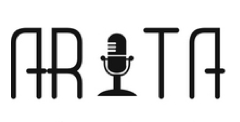Hospitality and Travel Industry:
The hospitality and travel industry is comprised of companies enabling you to get from points A to B comfortably, as well as have a meal and some fun along the way. These companies may offer lodging, foodservice, gaming, travel services, attractions, recreation, or passenger travel.
Industry Composition
The hospitality and travel industry is a collection of companies catering to the needs of people who travel, either leisurely or for business. These companies provide a range of services and products. The bulk of the industry is composed of airlines and charters; lodging, ranging from campgrounds to five star hotels; and foodservice establishments, including restaurants, cafes, and catering companies. The industry also includes travel agencies and services, such as car rental or tours; gambling, and recreation and attractions, including sporting events, amusement parks, and roadside attractions. These different services also merge to offer options such as resorts or cruise lines – a mix of lodging, attractions, and even transportation. In the United States alone, there are over four million guest accommodations available, and many billions of dollars are spent on travel; with global travel becoming more affordable and in greater demand, the hospitality and travel industry will become increasingly important.
Trends
The Internet has changed the shape of the travel industry; it is no longer necessary to call a travel agent, hotel, and airline to arrange a trip. Instead, travelers are able to log into a travel website and they can plan their entire trip in a couple minutes. This has increased competition among establishments in this industry and caused many independently owned and operated hotels and other lodging places to join national or international online reservation systems. Computer reservation systems have enabled the consumer to have direct control over the price and quality of a trip. Another recent change to the reservation system is the dramatic improvement in individual airline and hotel sites in order to compete with online booking sites. Since the websites of the actual providers do not need to take a fee on top of the price, these are often where the best deals are found.
The foodservice industry is also being affected by technology. Point-of-service (POS) systems enhance efficiency by combining functions such as keying in customer orders, sending orders to the kitchen, totaling and printing checks, authorizing credit cards, and tracking sales.
The industry as a whole is moving towards niche markets, or specialized areas of interest to attract a particular type of customer. People want to do what interests them when they travel and these companies realize that. For instance, several companies will emphasize golf resorts in the region if that is what interests the consumer.
The airline industry has been seeing a trend towards Discount flyers for short and mid distance flights. Companies, most notably Southwest Airlines, have created profitable business plans offering discounted flights for consumers reduced budgets. A notable fact for the long distance hauls is the move towards larger more luxurious planes with the ability to fly significantly farther than yesterday’s jumbo cruisers. Cities that have not traditionally been major airport hubs could not become important players in the global market with the advent of these newer long distance flyers.
Industry Leaders
Deutsche Lufthansa (Germany), United Continental Holdings United Continental Holdings), Delta Air Lines (United States), Air France-KLM (France), McDonald’s (United States)

